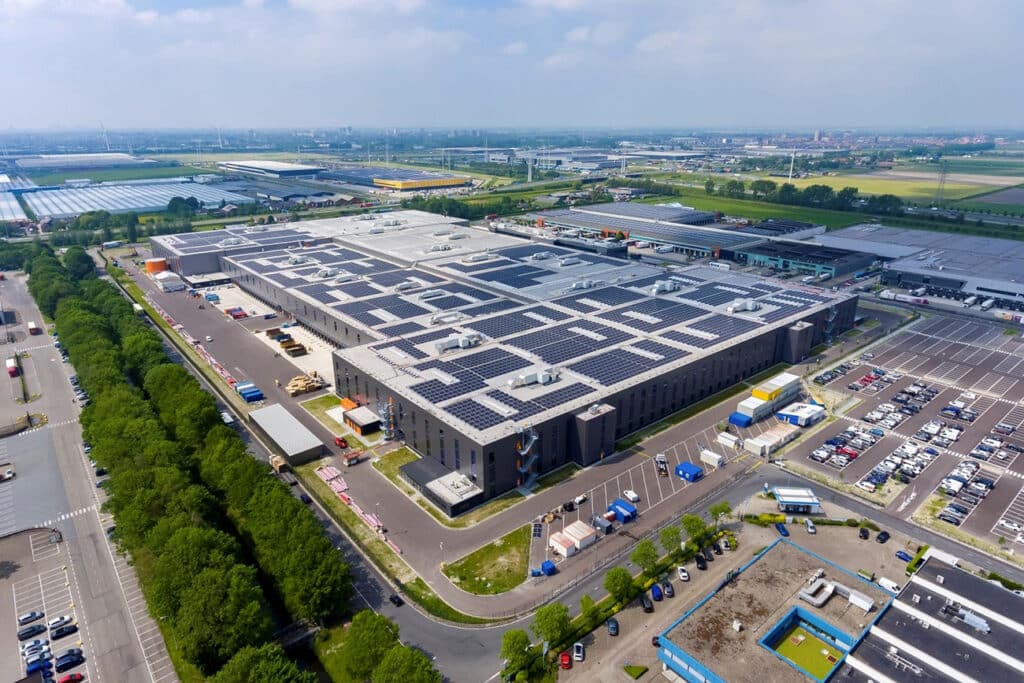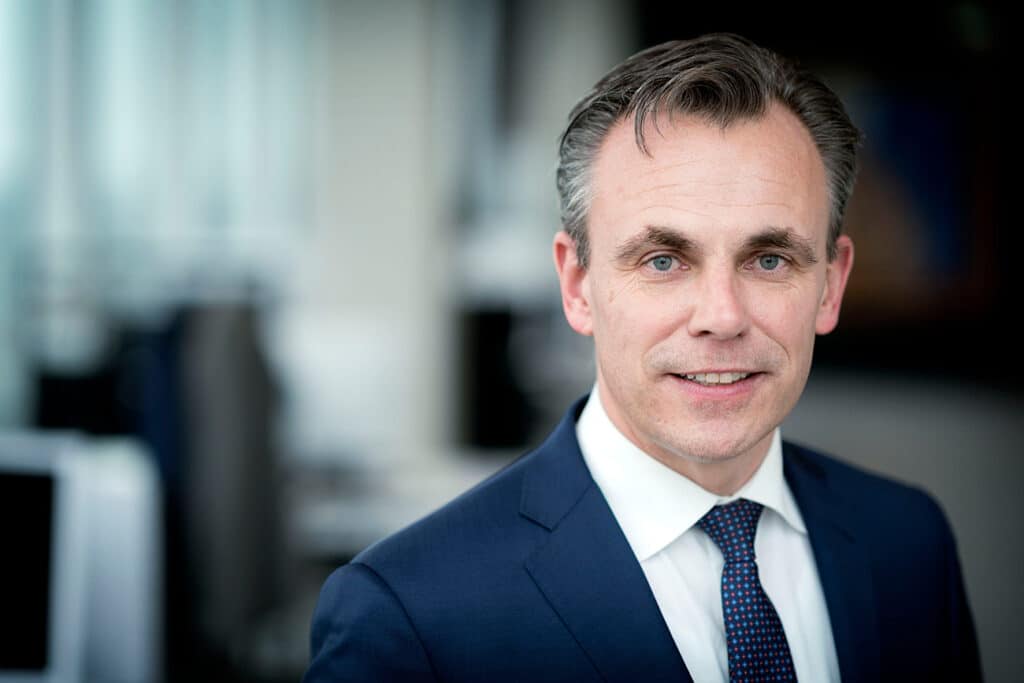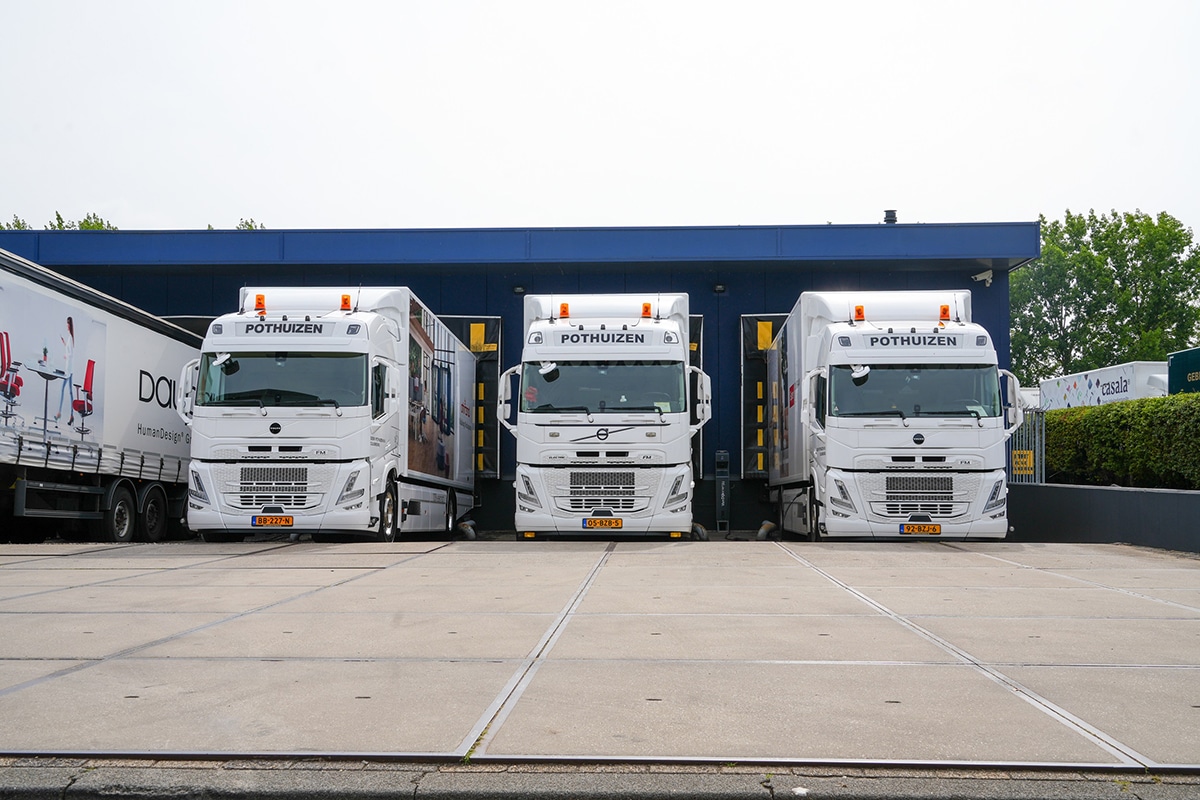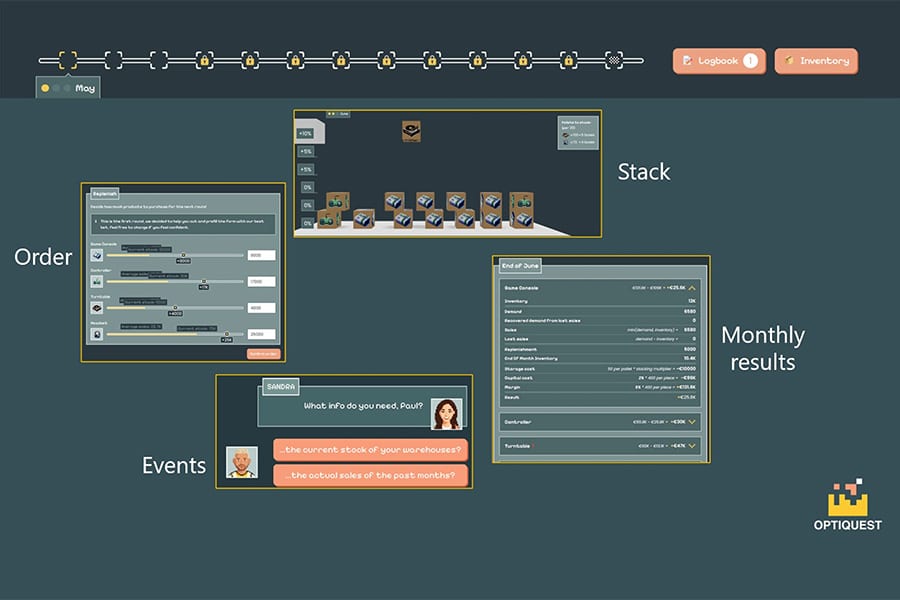
'If we want to remain leaders then we can only do so in a sustainable way'
Mark Harbers, Minister of Infrastructure and Water Management
Transport and logistics is an important industry for the Netherlands. After all, Rotterdam, the largest seaport in the western hemisphere, can only function with good hinterland connections. At the same time, we all know the challenge that our economy must be emission-free by 2050. According to outgoing Minister of Infrastructure and Water Management, Mark Harbers, we can therefore only remain leaders in a sustainable way. "My ministry wants to extend a helping hand to the sector to make that happen."

What are concrete measures that the transport and logistics sector can expect?
"For example, the introduction of the truck levy in 2026. That's a plan we worked out together with the industry. The idea is that domestic and foreign trucks will pay per kilometer driven to use Dutch highways. The charge will also apply on a number of N-roads and some municipal roads. The latter will prevent truck traffic from diverting on these roads. The amount of the fee is determined by the environmental characteristics and weight class of the truck. The lighter and cleaner the vehicle, the lower the rate. The proceeds of the charge will be returned in consultation with the transport sector, by using the money for innovation and sustainability. For example, by financially supporting entrepreneurs to purchase electric trucks, hydrogen trucks and charging infrastructure.
"In addition, we have agreed with the 30 largest cities to introduce emission-free zones for trucks and vans starting in 2025. Incidentally, this is subject to a transition period during which cities will ban the most polluting vehicles first. Together with other governments, we are now working to expand a good charging infrastructure so that these measures are also feasible."

How can you ensure such a good charging infrastructure knowing that our power grid is already reaching its limits?
"First of all, we address the legitimate concerns of business owners through the aforementioned transition periods, as well as exemptions and waivers. In addition, we encourage grid operators to strengthen the power grid. But indeed, that is hard work. We also know by now that more is needed than just a heavier power grid. You will also have to work with improved electricity storage. That is why I am so pleased that we work so well together with the industry and that transport and logistics companies think along with us. I am a great believer in cooperation in business parks, for example. For example, a company that uses electricity during the day can use its connection at night to charge the trucks of an adjacent transport company. That way, they catch each other's peaks. We also need to think even more carefully about using solar panels on all those flat roofs in and around business parks and use the power generated much more locally."
For heavy transport over longer distances, electric transport is most likely not the best option. How can these companies still become more sustainable?
"The most realistic solution in the future here is probably hydrogen. A special subsidy will be available for that later this year. After all, buying a hydrogen-powered truck is much more expensive than an electric truck. Together with logistics partners, we are already looking at how to set up the infrastructure for hydrogen refueling.
Here we also involve adjacent sectors such as inland navigation. You could imagine that a container terminal, which trucks and barges already use, would be a good place for hydrogen refueling.
"Incidentally, together with the industry, we are also looking very emphatically at how we can reduce the number of transport movements. For example, by combining loads more intelligently. For example, a company like Coolblue has very deliberately located its branches in city centers so that they can easily deliver orders with an electric cargo bike. But you can also think about cooperation between companies so that they use each other's empty rides."

There is a lot of criticism from the market that drivers of (heavier) electric vans have to get a truck driving license. Why have you removed this exemption and are you not concerned that this will slow down sustainability?
"I am the first to admit that I myself am extremely annoyed by this. However, the European regulations do not give me any opening to continue the exemption now. However, I have submitted a whole set of questions about it to the European Commission. Because there are a number of contradictions in the current rules. For example, a truck license would only apply to the additional weight of an electric bus. But if there is no fossil version, what is that extra weight? Moreover, only for driver's license C do you learn what the mass of your vehicle does to your braking distance and to other road users. For the RDW and the labor inspectorate, it is all together impossible to enforce. Hence I could not do otherwise. But I still hope there will be more clarity from Europe so we can adjust this rule. Incidentally, these kinds of obstacles are also part of a transition such as the one we are currently going through. I don't rule out that we will run into them more often in the future."
Another obstacle is the frequent maintenance of the Dutch infrastructure. This causes significant delays and a huge cost to the industry.
"There is indeed a lot of work to do. In doing so, we are making a virtue of necessity. We can hardly use our budgets for the construction of new infrastructure because of the nitrogen problem, inflation and the tight labor market. We are therefore going to use that money for major maintenance of our infrastructure. Rijkswaterstaat is planning this now and hopefully this will lead to efficiency benefits. But yes: it will cause inconvenience for the next 25 years. There is little we can do about that. We will of course try to limit the inconvenience as much as possible by not tackling several bridges or viaducts in one region at the same time, thus ensuring sufficient detour routes."
You have been outgoing minister for a few months. Your successor may not be as keen on sustainable transport. Aren't you afraid that a new infrastructure minister will reverse many measures?
"Of course, I can't look into the future, but a lot of legislation in this area has already passed the House of Representatives and the Senate. We are in the midst of implementation, and at the request of the industry we have even brought forward some of the revenues from the truck levy, for example. A next administration cannot simply reverse that. Moreover, we are not an island and agreements have also been made in Europe about making this sector more sustainable. Since the sector operates internationally par excellence, it is difficult to evade international agreements. Timely investment is therefore also in the interest of the sector itself. Moreover, you really can't stop the development of emission-free trucks."
There is much criticism - including political criticism - of the so-called "doom" of the Netherlands, caused by the ever-expanding distribution centers. Do you think the central government should play a more guiding role in this than it has in recent years?
Or should this remain a responsibility of provinces and municipalities?
"I am by no means closing my eyes to that discussion. On the other hand, distribution centers are essential because our groceries and packages ordered online don't just fall out of the sky. That convenience cannot be achieved without these 'boxes.' That does not alter the fact that in the Netherlands we are proliferating with scarce space. Part of my portfolio is about water, and the past few months have shown that we need to keep a lot more space for that too. So according to good Dutch practice, we will have to agree together with all those involved - the state, provinces, municipalities, water boards and the various sectors - on how to organize our country as smartly as possible."




